There is scant evidence that William Shakespeare authored the plays and sonnets attributed to him. But questioning the authorship is an unacceptable heresy among Shakespearean scholars who liken it to believing the moon landing was faked. These scholars have built their academic careers on the foundations of the Shakespearean myth, writing long biographies that are almost all based on hypothesis and conjecture. They are the guardians of the one true church, and like grand inquisitors arrogantly dismiss intriguing arguments to be made for other authors including Edward de Vere, the 17th earl of Oxford, Christopher Marlowe, Mary Sidney, Francis Bacon, and others. Or perhaps, like the King James Bible, published in 1611 after several years of work by a committee of 47 scholars and clergymen, the plays were a collaborative effort by several talented writers and poets. Even the most adamant defenders of Shakespearean authorship concede that some of the plays attributed to him, such as Pericles, contain the work of other authors. What is not in dispute is that even raising this issue is a literary taboo. But this is not an idle question, for a writer’s past and experience illuminates his or her work, despite what the post-modernists preach. The Shakespeare narrative fits perhaps too neatly into popular mythology – the story of a poorly educated glover’s son who arrives in London from a rural village and conquers the stage and writes the most immortal verse in the English language. Joining me to discuss the debate is Elizabeth Winkler author of “Shakespeare Was a Woman and Other Heresies: How Doubting the Bard Became the Biggest Taboo in Literature.”
Ready for more?

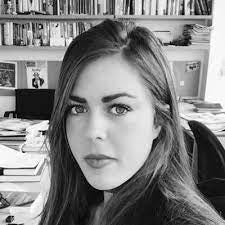








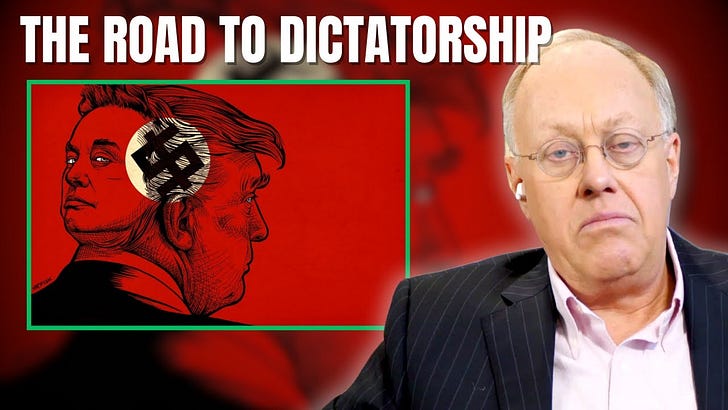
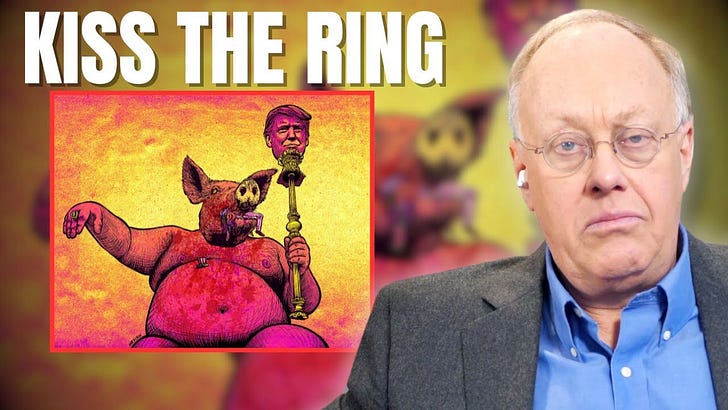
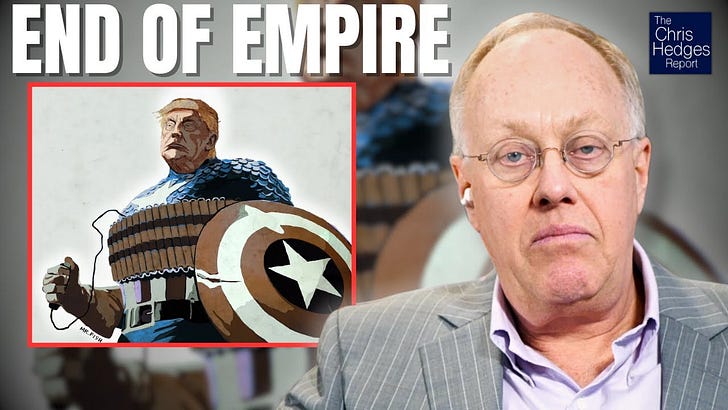
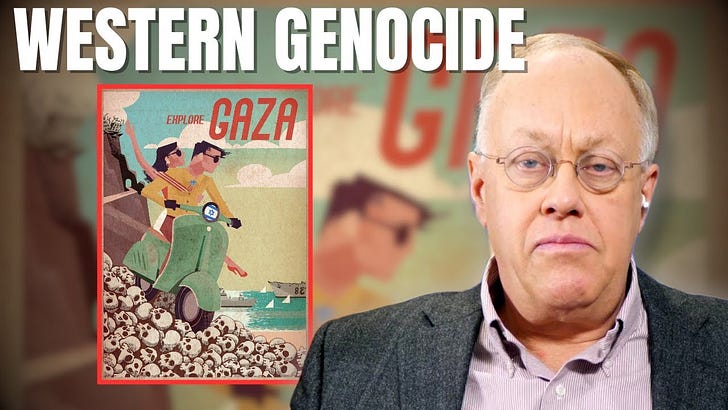
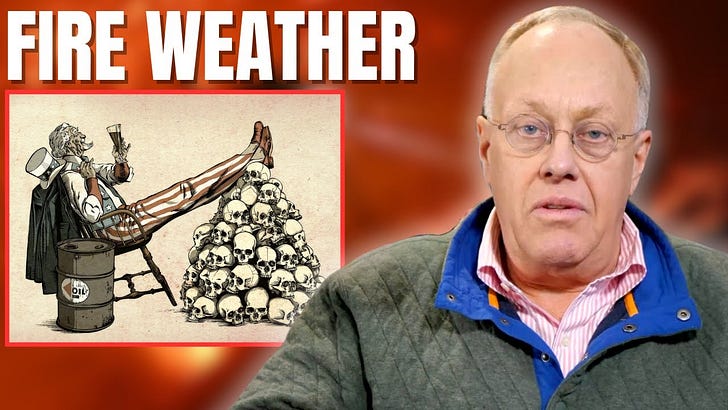
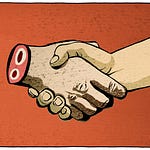
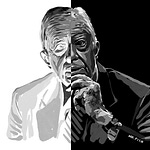
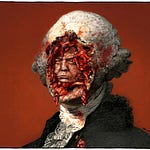
I enjoyed this conversation so much! It is weird to me that people say things like "I only care about the text, not the author". I can never read something that calls my attention, bad or good, that the first thing to comes to my mind is who the author might be. It can be with disgust or pleasant surprise, but I do get curious about the authorship.
History and myth are so intertwined it becomes "reality". Human stories and story tellers, was the first from of propaganda. Think of all the characters in your mind, they are "real" memories. From Humpty Dumpty or Winston Smith reciting their "voice" brings out feelings that are real. Could the Bard be as mythical as Jesus or the Bible? David and Goliath? Jason and the Argonauts? The Joad's in Grapes of Wrath? Mr. Smith who goes to Washington? George Baily or Mr. Potts the banker? Uncle Sam? We have hard wired brains of Tribalism and oral stories who turn to our self made oracles like Joseph and his multicolored robe.
P,S, Orwell once said "do not confuse the author with his written word."
But that’s what he did in “Dickens, Dali and Others”
Short line but confusing. He was pointing out their usual hypocrisy and life style that was in many cases the exact opposite of their written word.
Perhaps we in the 21st century are far too caught up in "identity" issues in literature--so that WHO writes becomes, at times, far too significant and obscures WHAT is written. And that compulsion to, at times, elevate the unknowns about the author's biography over the quality of their writing is perhaps what's behind this journalist's interest in who wrote the plays and sonnets we attribute to William Shakespeare. I've taught Shakespeare courses as Marjorie Garber's comments quoted here might suggest: it's the text that should intrigue us and ultimately tell us much more about ourselves than we could ever know about their author. That's the point.
For decades the Shakespeare Oxford Fellowship has maintained that Edward d Vere 17th Earl of Oxford is almost certainly the author of the plays attributed to William Shakespeare. Literary and academic scholars in the UK and US have scrupulously researched and presented material about de Vere to substantiate this claim. His place at Court during tumultuous times, his deep education giving him familiarity with the practice of the law, languages, history, religion, the classics and political situations reflected in the plays. His extensive European travels are evident in authentic detail in the plays (eg Hamlet) set in France and Italy and elsewhere. Those who deny the likelihood of the de Vere authorship, generally know as Stratfordians, have their entire academic careers invested in maintaining that the man named Shakespeare somehow acquired the huge body of knowledge needed to write the plays mysteriously. For several centuries Stratford on Avon flourished due to its global reputation as the home of Shakespeare. Economically this is huge as millions of tourists have flocked to revere the supposed birthplace and home of the author. Imagine the damage to the UK's tourist industry and reputation if this belief is challenged! Dozens of eminent writers, actors, and political figures for the past three hundred years have spoken out agains the authorship of the plays being accredited to this person! I suggest that those who read this interview access some of the many lectures by scholars who have presented their work during Shakespeare Oxford Fellowship conferences if you want to unravel this great conundrum. Fascinating and informative! Then you will be better informed about the topic.
This made me chuckle. It made me think of people arguing about how many angels can dance on the head of a pin. It also sent my mind in a different direction. When we know who the authors are can we separate them from their work. Humans are humans creative and not. Can we admire the work by people who are liars, murders, abusers? Should we? Maybe not knowing who the real Shakespeare is not a bad thing. ;-)
I enjoyed the interview but take issue with one aspect of the discussion. The lumping of Foucault into the postmodern morass is simply erroneous. I find it ironic that the interview focuses on Shakespeare scholars who have made careers out of obfuscating questions of Shakespeare's identity and at the same time makes claims about Foucault's purported postmodernism. Those erroneous critiques of Foucault are based on the very same sorts of claims of academics who have made their careers off of either cherry picking out of context quotations to affirm their own postmodern leanings or criticizing Foucault for being a postmodernist. Foucault on numerous occasions rejected postmodernism (the rejection of modernity), structuralism, scientific Marxism and other classifications that had been attributed to him. As an academic who has actually engaged with Foucault's voluminous writings, it is astounding to me, though perhaps unsurprising, that such polemical misreadings of him continue to flourish. For instance, one of Foucault's intellectual touchstones was Kant, particularly his notion of positive critique. Nietzsche's genealogy also significantly influenced Foucault. His later lectures returned to the ancients, particularly Epictetus, Fronto, Seneca, and others to discuss ethics and the search for truth. Hardly a postmodern preoccupation. Of course, by then, Foucault's repetition of the Socratic maxim "take care of yourself" had been reduced by many academics to proof that Foucault was a neoliberal. Perhaps those academics missed his lectures in The Birth of Biopolitics in which he savaged neoliberalism. I admire and respect your work. That said, with respect your misrepresentation of Foucault, which you have repeated in several interviews, is intellectually lazy and beneath you.
I am not a fan of historical revisionism and this entire project of debunking. Myths (and traditions) are not per se a "bad" thing that require debunking.
Disappointed that Hedges is playing this game, for which there is no end to.
OK that underlines the term "woke" as a put down from the right as we all know it is. Burying the facts of inconvenient truths is what Orwell's Memory Hole is all about. Calling someone woke is like the old slur "ni--er lover"! Historical Revisionism that is factual is only dangerous to those that profit from lies!
Broad brush binary thinking kills.
Just because a perspective sees some value in myth and tradition does not make criticism of revisionist attempts to debunk those myths as a right wing attack on "woke". Or an effort to "profit from lies". Or to memory hole truth.
The author Hedges interviewed did no deal in any "truth" or fact - she simply dismantled myths (ironically with myths of her own).
My goodness, we don't know who shot JFK (live on Teevee, 60 years ago), but this interview dabbled in speculation of a death 500 years ago! Understanding the biographies and origins of creative force is a fools errand. Give me a break.
Many say it was Lee Harvey Oswald are you a revisionist or a broad brush thinker that thinks lies/myth are neither good or bad? Even if they lead to war and justification for war. They do point out that "drafting" Shakespeare by the British Empire gave some kind of legitimacy to the white mans burden.
Of course we love to know the truth. But when this is not possible with the information we have, then, the pondering of the many potential explanations for what we don't know is very healthy and this is what this interview tries to do. I don't consider them revisionism but rather good learning. Better to know that Shakespeare may not have been what tradition tells us.
It reminds me of the History Channel's show, "Ancient Aliens." We can't prove current aliens, so they reach back in time when we are able to say any such nonsense that is needed. It also can't be disputed. This has been done by LGBTq writers who like to reach back and claim that historical figures were gay. This includes the composer, Verdi who I share a last name with. His characters are labeled as gay in "Don Carlos," under their article "Queers in Opera." No evidence. Verdi was not gay at least. Let dead people lay. History has decided on conclusions.
If the character of a performance piece is gay, or mass murderer or whatever, it doesn't make the author likewise. By any chance have you checked if you are descendent from that great composer? I see you love his writings and so do I.
He had 2 daughters who both died as babies. So, I haven’t. Most straight men are not going to write about a gay love affair. The gay observers have read that into the script. The characters have been straight for 150 years 😊
So Spartans and Greeks weren't gay? Word has it Plato and others school of philosophy did a lot of their teaching of youth in the bath houses. Spartan soldiers had sex with their wives for children and slipped back to their barracks for male companionship is a fact! Rich Roman pedophiles would pick out boys in the street and make them into sex slaves. Sorry what's your point again?
You have a different way of interpreting what someone says
I am surprised you’ll didn’t discuss the body of evidence that supports the Edward de Vere theory. I am fairly sure this is who Mark Rylance believed it was which must have been why he felt abused. Mark Rylance opens the wonderful movie, Anonymous, that explains in large part why the Earl of Oxford, Edward de Vere promised Queen Elizabeth to keep their secret. The answer to the question as to why it remained a secret for so long according to the the Oxfordians is that Edward de Vere was Queen Elizabeth’s son which she had secretly at age 14 by Thomas Seymour who about that same time married Henry VIII’s last wife Katherine Parr. According to the Oxfordians’s theory which came to light in the thirties and was endorsed by many public intellectuals like Mark Twain, Sigmund Freud, I think, part of the reason it has been covered up for so long is that Edward de Vere, the real Shakespeare, had a child with his Mother, Queen Elizabeth, and this is why he wrote the plays to convince his mother, Queen Elizabeth, to see that she should acknowledge this truth before she died that Edward de Vere’s son was her son and that Essex, who was also her son with her true love, Robert would have been the best ones to acknowledge as her successors. The problem deVere was trying to show the world and the Queen in plays like Othello, Merchant of Venice, Hamlet, and ultimately Richard Iii is that she shouldn’t trust Robert Cecil - the evil manipulative hunchback who Oxfordians believe was also her son and the model for Richard III in that play which DeVere wrote to incite the people to follow Essex in the Essex Rebellion they tried to organize after showing Richard III but Robert Cecil was able to stop it and cult off Essex’s head before Elizabeth could stop him. The story as so beautifully told in Anonymous is that DeVere was able to save the life of their son but it was done by promising to keep his birthright anonymous. According to several excellent books that Oxfordian scholar have written, Shajespeare’s / deVere’s sonnets were written for his son. … This all still begs the question raised in your interview with the writer of this book which is why the Stratfordians are still keeping this so secret. I think it is because there is still a very powerful evil force run by descendants of the Monarchy that silences those who expose the truth about their dirty secrets. It sounds as if they are protecting their reign of secrecy by sending the message that we dare not say their name other wise they will do to us what they did to Mark Rylance and Julian Assange. I suggest people listen to the growing body of scholarship being uncovered by people like Mike McKibben and Douglas Gabriel that points to the English Crown as being the head of the Octopus that Danny Casolaro was about to expose which is why he like Julian Assange, Edward Snowden and those like you had to be removed from the platform they depend on to keep the dirty secret of the connections between Hitler Germany, Netanyahu’s snd the Rothschild’s Israrl and the AIPAC Mega Grouo that are the hidden rulers of the Fourth Reich that we are just living in.
Who knows or cares where Picasso went to college?
Genius from humble backgrounds: Newton, Erasmus, Luther, Samuel Johnson, Orwell… it happens a few times a century. Elite schooling back then was hardly worldly - more along the lines of rote memorization. This theme resurfaces every 20-30 years and aside from the cheap shots here she presents nothing new. Joe Sobran (National Review gadfly) made a stronger case 30 years ago, but also offered no counter evidence. Marlow? Dr Faustus (wonderful play) has no similarities to Hamlet. It’s all about the “English Departments” isn’t it, which lovers of Shakespeare couldn’t care less about. Come up with ONE piece of real evidence - not interviews with bureaucrats and actors - and someone might listen. Chris, there are surely more important conspiracy rabbit holes you can explore.
This is a curious topic and curious ideas I think. There are questions that I would like pose. If the plays were written by courtiers or by Marlowe who was born and grew up in Canterbury, where did all the intimate knowledge of Warwickshire country life, flora and fauna so embedded in Shakespeare plays come from? I take some issue with Elizabeth Winkler’s summary dismissal of the education Shakespeare most likely received which was a thorough grounding in the knowledge of the time as I understand it. I also found the description of the Shakespeare properties as ‘fraudulent’ a simplistic response to the heartbreaking touristification of the town mostly to pander to the tastes of tourists a good many of whom are Americans seeking Disney Europe. Finally, it seems to me that the ‘authorship’ question, whether for or agin, is too sides of the same coin, a relentless search for biography, to make or debunk celebrity rather than directly address the work of art itself.
People are more interested in biography than art, especially in music. Your typical music appreciation class can be 90% biography. Music is too technical for the layman.
Taylor Swift's enormous popularity is pretty much all approval of her personality and actions.
I'm long past worrying about any of this. It's just the way it is. Would I rather people have no interest at all?
We’re “talking” Literature here
THE Written Word which we hold Dear.
Our Words are phonetically Language based,
Alphabetically ordered and uttered
Pronounced and Expressed
In Accordance with One’s place
& taste.
“It is the star to every wandering barque
Whose worth’s unknown although HIS height be taken.”
If ships are considered female, the use of “his” (height) here would seem to indicate a male author talking about the constancy of focus of a man in love despite his vicissitudes; having earlier found “alteration”, it’s an enforced wandering. The poet describes a man affirming his belief that society does not know his worth as one who loves, despite judging him on his appearance from the acreage of his sail.
An anthem for the constancy of unrequited love in Shakespeare’s perhaps most romantic of sonnets.
#NEARLY two score years past
In an aeroplane’s seat
(not First Class)
The Travel zine before me claimed
to tell the truth of the great Bard’s fame.
Quite convincing was the story
attributing to the Earl of Oxford
the authorial Glory.
Saying someone else wrote the plays is a conspiracy theory that goes back for centuries. Sir Francis Bacon is the most common suspect. After hundreds of years of unsubstantiated claims the scholars got sick and tired of it and it indeed became a taboo.
A similar thing accrued in physics. Physicists grew so weary of a century of bogus attempts to refute Special Relativity that today such is taboo. If you make any hint of doing this they will either cut you off completely or shower you with abuse until you go away. I purchased Reflections on Relativity, a book of well-founded but mildly unorthodox views of this. The author was so intimidated by the potential response to such minor deviation he published under an assumed name. It would have been a career ender.
Then, there's this group of scholars who posit there was no one man, named: William Shakespeare;
rather all the plays and sonnets were written by a loose collection of British Lords, who, having to publish anything, had to do it anonymously, or through a 'ghost' author's name. Due to the Crown's
law being that as Lords, their writing was proscribed strictly to legal business. I find this notion to be
tempting, yet, upon serious consideration, it finally falls flat. Indeed. Over time and experience I tend
to believe in the occasional genius. After all, we do have a fair share of them over time. I thank God for it.
Another great book, I was told, was The Private Life of Helen of Troy.
Surely the author of that book went broke